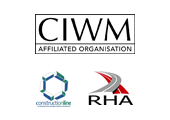Legislation
» The UK Waste Management Industry
» DEFRA
» Waste Strategy 2007 for England and Wales
The UK Waste Management Industry
Most waste produced in England and Wales goes to landfill. Around 54% of commercial and industrial waste, and 83% of municipal waste is managed in this way.
We produce around 400 million tonnes of waste in England and Wales each year:
- 106 million tonnes is produced by industry, commerce and households
- the remainder 300 million tones - is made up of construction and demolition wastes, agricultural wastes, mining wastes, sewage sludge and dredged spoils.
Landfill Tax
Budget 2007
In Budget 2007 the Chancellor announced that the landfill tax would increase more quickly and to a higher level than previously planned. Increases of £8 per tonne per year for active waste were announced from 2008-09 to at least 2010-11.
This is a big increase on the existing 'landfill tax escalator' under which the standard rate of tax was increased by £3 per tonne in each of the past three years as part of the Government's previous aim, announced in 2002, of reaching a rate of £35 per tonne.
How much is landfill tax now and how much will it increase to?
The current standard rate of landfill tax is £24/tonne. This rate
applies to active wastes (those that give off emissions). This will
have doubled to £48/t in 2010/11.
A lower rate of £2 per tonne applies to inactive wastes listed. From 1 April 2008 this will increase to £2.50 per tonne.
What will this mean for waste producers and waste management
companies?
Increasing the tax to a higher level makes investments in alternative
non-landfill treatments such as recycling and anaerobic digestion
more economically viable.
Waste producers will have a greater incentive to avoid the burden of increased tax on landfilling through diverting waste from landfill and by using separated waste collection services involving waste auditing and separation of waste at source. These will become relatively cheaper, leaving only residual mixed wastes requiring disposal.
For many companies this relative change in costs could tip the balance between recycling and landfill disposal, making recycling now the most cost effective option. Source separation of waste has both environmental benefits, by allowing improved resource and energy recovery, and potential financial savings. Waste auditing and segregation allow businesses to see more clearly where their waste is produced and how it could be reduced. Reducing waste not only avoids any costs of waste treatment, but can also reduce costs through lower overall material consumption.
Has the landfill tax been successful?
Yes, it has been very successful to date. Overall quantities of
waste recorded at landfill sites registered for the tax fell from
around 96 million tonnes in 1997-98 to around 72 million tonnes
in 2005-06, a reduction of around 25%.
DEFRA
DEFRA - Department for Environment, Food and Rural Affairs work for the essentials of life - food, air, land, water, people, animals and plants. Their remit is the pursuit of sustainable development - weaving together economic, social and environmental concerns. Defra therefore:
- brings all aspects of the environment, rural matters, farming and food production together
- is a focal point for all rural policy, relating to people, the economy and the environment
- has roles in both European Union and global policy making, so that its work has a strong international dimension
Waste Strategy 2007 for England and Wales
What the waste strategy means for business
Businesses have a big part to play in creating economic and environmental gains by ensuring their operations use recycled materials and include waste reduction measures. The strategy will offer the incentives and guidance to do this:
- Businesses are being asked to take greater responsibility for the environmental impact of their products and operations. A new products and materials unit within Defra will help identify the actions needed to improve the environmental performance of products throughout their life cycle. The increase in the landfill tax escalator (announced by the Chancellor in the Budget 2007) of £8 per year from 2008 until at least 2010/11 means that it will be cheaper for businesses to separate waste materials for recycling; freeing up more resources to invest in reducing their waste.
- The Business Resource Efficiency and Waste programme (financed from the landfill tax) will continue to advise businesses on how to reduce and recycle their waste (with £4 saved by business for each £1 of government money); and design products that lower waste and other environmental impacts. The regulatory system is being simplified through reforming the permitting and exemption systems. There will be set standards for products made from recycled waste (e.g. compost), that will be a clear “mark of quality” for consumers.
- Clear standards will be developed for products to reduce excess packaging. e.g. by setting optimal packaging standards for a product class. Higher recycling targets will be proposed (subject to analysis) beyond the 2008 European targets, that would require businesses to recycle more of the packaging they produce. Industry and local authorities are currently working together to develop the most cost effective way to collect household packaging waste to be recycled.
- Retailers are being asked to phase out the use of free disposable bags. This could involve them only selling long-life reusable bags or alternatively charging for disposable bags. The proceeds could then be used to sell long-life bags at a discount. Retailers have already agreed to reduce the environmental impact of free disposable bags by 25% by the end of 2008.
- Non-food retailers are being invited to join the Courtauld Commitment of major retailers and food brands to reduce packaging, food and other post-consumer food waste.
- For construction projects over a certain value site waste management plans will, subject to the current consultation, become mandatory, helping to reduce and recycle construction waste.
Environmental agency
The EA are responsible for ensuring waste produced in England and Wales is correctly disposed of. They work with industry, local authorities and Government to ensure that hazardous waste is dealt with so that it does not pose a threat to human health or the environment. They encourage reuse and recycling and support the development of facilities to deal with hazardous waste.
In England and Wales waste going to landfill is controlled under the following regulations:
» Control
of Pollution (Amendment) Act 1989
» Clean
Neighbourhoods and Environment Act 2005
» Environment
Act 1995
» Environmental
Protection Act 1990
» Controlled
Waste Regulations 1992 SI 588
» Controlled
Waste (Amendment) Regulations 1993 SI 566
» Environmental
Protection (Duty of Care) Regulations 1991 SI 2839
» Environmental
Protection (Duty of Care) (England) (Amendment) Regulations 2003
SI 63
» Landfill
(England and Wales) Regulations 2002 SI 1559
» Landfill
(England and Wales) (Amendment) Regulations 2004 SI 1375
» Landfill
(England and Wales) (Amendment) Regulations 2005 SI 1640
» Packaging
(Essential Requirements) Regulations 2003 SI 1941
» Packaging
(Essential Requirements) (Amendment) Regulations 2004 SI 1188
» Packaging
(Essential Requirements) (Amendment) Regulations 2006 SI 1492
» Producer
Responsibility Obligations (Packaging Waste) Regulations 2007 SI
871
» Waste
Electrical and Electronic Equipment Regulations 2006 SI 3289
» Waste
Electrical and Electronic Equipment (Amendment) Regulations 2007
SI 3454
» Waste
Electrical and Electronic Equipment (Waste Management Licensing)
(England and Wales) Regulations 2006 SI 3315
» Waste
Electrical and Electronic Equipment (Waste management Licensing)
(England and Wales) (Amendment) Regulations 2007 SI 1085
» Waste
Incineration (England and Wales) Regulations 2002, SI 2980
» Waste
Management (England and Wales) Regulations 2006 SI 937
» Waste
Management Licensing Regulations 1994 SI 1056
» Waste
Management Licensing (Amendment) Regulations 1995, SI 288
» Waste
Management Licensing (Amendment No 2) Regulations 1995 SI 1950
» Waste
Management Licensing (Amendment) Regulations 1996, SI 1279
» Waste
Management Licensing (Amendment) Regulations 1997 SI 2203
» Waste
Management Licensing (Amendment) Regulations 1998 SI 606
» Waste
Management Licensing (Amendment) (England) Regulations 2002 SI 674
» Waste
Management Licensing (Amendment) (England) Regulations 2003 SI 595
» Waste
Management Licensing (England and Wales)(Amendment and Related Provisions)(No.
3) Regulations 2005 SI 1728
» Waste
Management Regulations 1996, SI 634
» Waste
Management (Miscellaneous Provisions) (England and Wales) Regulations
2007 SI 1156






